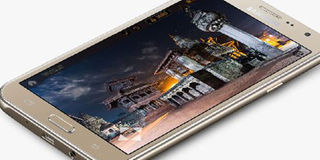Living in the hectic age of information overload

A Samsung j7 mid-range 4G enabled smartphone. Smartphones are more powerful and do more things than the most advanced computer at IBM corporate headquarters 30 years ago. FILE PHOTO
What you need to know:
- Our smartphones have become Swiss army knife-like appliances that include a dictionary, calculator, web browser, email, appointment calendar, voice recorder, camera, weather forecaster, GPS, texter, tweeter, Facebook updater, and flashlight.
- The phones are more powerful and do more things than the most advanced computer at IBM corporate headquarters 30 years ago.
Today, trying to figure out what you need to know and what you can ignore is exhausting.
Thirty years ago, travel agents made our travel reservations, salespeople helped us find what we were looking for in shops, and professional typists or secretaries helped busy people with their correspondence. Now we do most of these things ourselves.
We are doing the jobs of a dozen different people while still trying to keep up with our lives, our families, our friends and our careers.
Our smartphones have become Swiss army knife-like appliances that include a dictionary, calculator, web browser, email, appointment calendar, voice recorder, camera, weather forecaster, GPS, texter, tweeter, Facebook updater, and flashlight.
The phones are more powerful and do more things than the most advanced computer at IBM corporate headquarters 30 years ago.
And we use them all the time, part of a 21st-century mania for cramming everything we do into every single spare moment of downtime.
We text while we’re walking across the street, catch up on email while standing in a queue — and while having lunch with friends, we surreptitiously check to see what our other friends are doing.
This is in sharp contrast with the old days.
Then, if the phone rang and we were busy, we either didn’t answer or we turned the ringer off.
When all phones were wired to a wall, there was no expectation of being able to reach us at all times — one might have gone out for a walk or been between places — and so if someone couldn’t reach you, it was considered normal.
DIFFERENT TIMES
Nowadays there is an expectation that you should be able to reach someone when it is convenient for you, regardless of whether it is convenient for them. This expectation is so ingrained that people in meetings routinely answer their mobile phones to say, “I’m sorry, I can’t talk now, I’m in a meeting.”
Just a decade or two ago, those same people would have let a landline on their desk go unanswered during a meeting; so different were the expectations for reachability.
The sheer volume of email many people receive daily is overwhelming, taking a huge bite out of our day.
We feel obliged to answer them, but it seems impossible to do so and get anything else done.
Before email, if you wanted to write to someone, you had to invest some effort in it.
You’d sit down with pen and paper, or at a typewriter, and carefully compose a message.
There wasn’t anything about the medium that lent itself to dashing off quick notes without giving them much thought, partly because of the ritual involved, and the time it took to write a note, find and address an envelope, add postage, and take the letter to a post office.
Because the very act of writing a note or letter to someone took this many steps, and was spread out over time, we didn’t go to the trouble unless we had something important to say.
Because of email’s immediacy, most of us give little thought to typing up any little thing that pops in our heads and hitting the send button.
OFFERING PRIVACY
Now email is approaching obsolescence as a communicative medium.
Most people under the age of 30 think of email as an outdated mode of communication used only by “old people”.
In its place they text, and some still post to Facebook.
They attach documents, photos, videos, and links to their text messages and Facebook posts just the way people over 30 do with email.
Many people under 20 now see Facebook as a medium for the older generation.
For them, texting has become the primary mode of communication.
It offers privacy that you don’t get with phone calls, and immediacy you don’t get with email.





